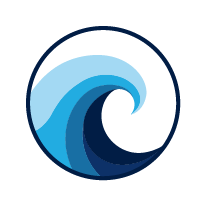Protecting Whales
Whales are increasingly under threat. Historically, sperm whales were heavily hunted, and remain globally designated as Vulnerable on the IUCN Red List.
In the Caribbean, the trajectory of the community is in critical decline, in part due to high calf mortality. We are working to reduce threats to whales, increase calf survivorship and help the population rebound.

Only 1 in 3 sperm whale calves survive to their first birthday
Photo Credit: Amanda Cotton
Our Goals for Whales
Whale-safe shipping lanes are reducing ship strikes and whale mortality.
Whales have sufficient protected habitats and a management plan for interactions with humans.
Projects that Protect Whales
-
Working with local governments and communities we advocate for the protection of marine areas that keep whales safe from threats such ship strikes, entanglement, and vessel interactions.
-
We have set up receiving stations in Dominica to gather vessel traffic information. This data will be used to set up organized shipping lanes that can decrease ship strikes and help protect whales that pass through.
-
We helped develop Flukebook, which applies computer vision algorithms and deep learning to identify and track individual whales and dolphins across hundreds of thousands of photos.
Through our work with whale watch excursions, passengers can share images on Flukebook that help piece together whale migration patterns.
Pictures Tell Stories that Save Whales
Through Flukebook, passengers on whale watch excursions can share their images and contribute to building individual whale profiles. Using computer vision algorithms and deep learning, Oceans Forward and our partners identify and track individual whales and dolphins across hundreds of thousands of photos. By knowing where whales are and what they are doing, we can better advocate for their protection.
Our Work Continues
We are working to restore coral reefs and save sea turtles. Learn more about our work to protect marine life in the Caribbean.






